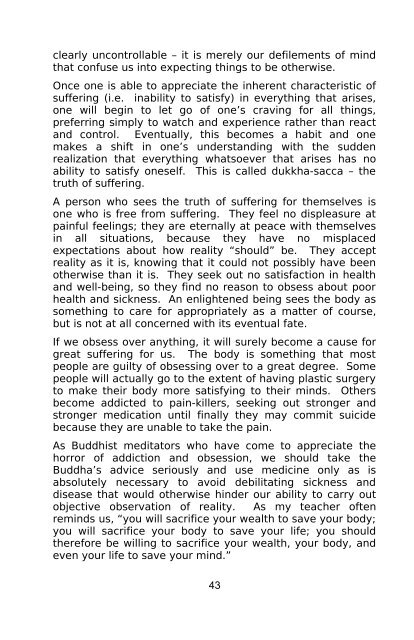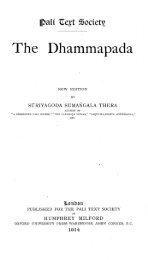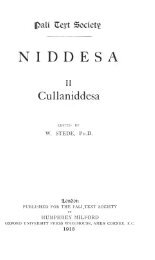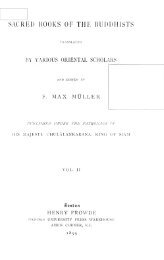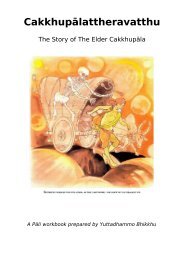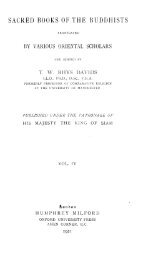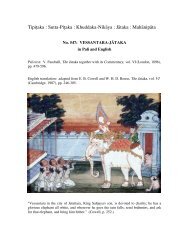Lessons In Practical Buddhism - Sirimangalo.Org
Lessons In Practical Buddhism - Sirimangalo.Org
Lessons In Practical Buddhism - Sirimangalo.Org
You also want an ePaper? Increase the reach of your titles
YUMPU automatically turns print PDFs into web optimized ePapers that Google loves.
clearly uncontrollable – it is merely our defilements of mind<br />
that confuse us into expecting things to be otherwise.<br />
Once one is able to appreciate the inherent characteristic of<br />
suffering (i.e. inability to satisfy) in everything that arises,<br />
one will begin to let go of one’s craving for all things,<br />
preferring simply to watch and experience rather than react<br />
and control. Eventually, this becomes a habit and one<br />
makes a shift in one’s understanding with the sudden<br />
realization that everything whatsoever that arises has no<br />
ability to satisfy oneself. This is called dukkha-sacca – the<br />
truth of suffering.<br />
A person who sees the truth of suffering for themselves is<br />
one who is free from suffering. They feel no displeasure at<br />
painful feelings; they are eternally at peace with themselves<br />
in all situations, because they have no misplaced<br />
expectations about how reality “should” be. They accept<br />
reality as it is, knowing that it could not possibly have been<br />
otherwise than it is. They seek out no satisfaction in health<br />
and well-being, so they find no reason to obsess about poor<br />
health and sickness. An enlightened being sees the body as<br />
something to care for appropriately as a matter of course,<br />
but is not at all concerned with its eventual fate.<br />
If we obsess over anything, it will surely become a cause for<br />
great suffering for us. The body is something that most<br />
people are guilty of obsessing over to a great degree. Some<br />
people will actually go to the extent of having plastic surgery<br />
to make their body more satisfying to their minds. Others<br />
become addicted to pain-killers, seeking out stronger and<br />
stronger medication until finally they may commit suicide<br />
because they are unable to take the pain.<br />
As Buddhist meditators who have come to appreciate the<br />
horror of addiction and obsession, we should take the<br />
Buddha’s advice seriously and use medicine only as is<br />
absolutely necessary to avoid debilitating sickness and<br />
disease that would otherwise hinder our ability to carry out<br />
objective observation of reality. As my teacher often<br />
reminds us, “you will sacrifice your wealth to save your body;<br />
you will sacrifice your body to save your life; you should<br />
therefore be willing to sacrifice your wealth, your body, and<br />
even your life to save your mind.”<br />
43


